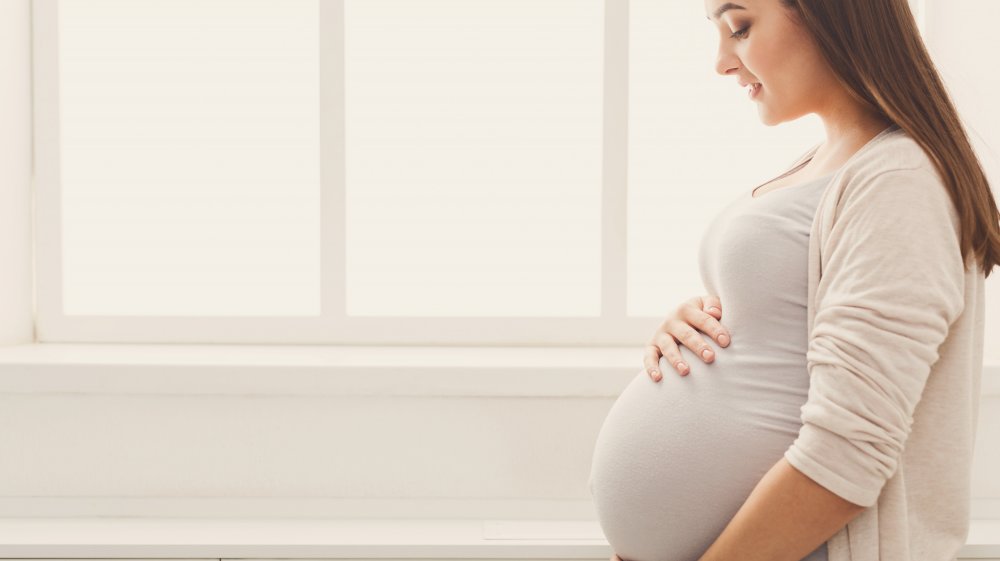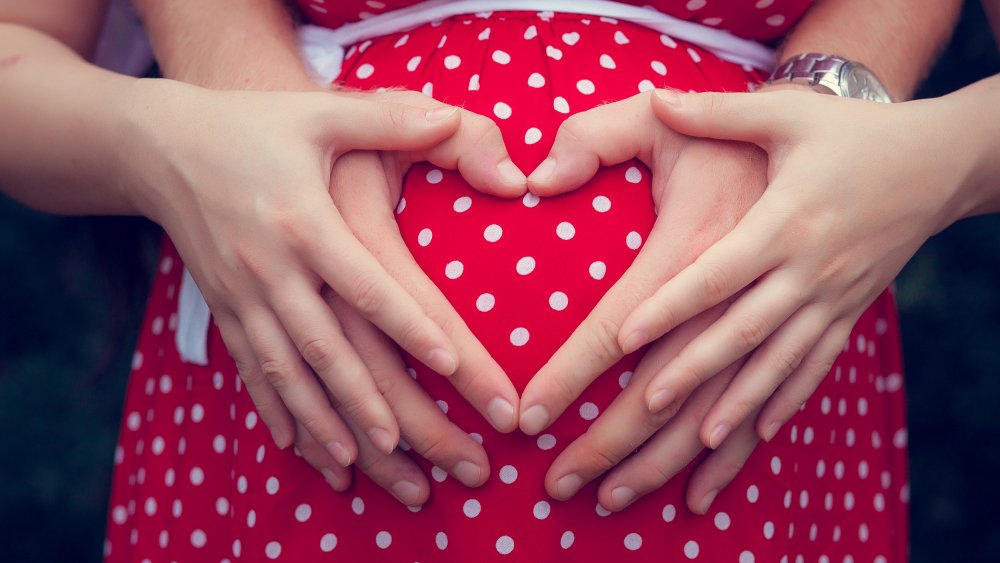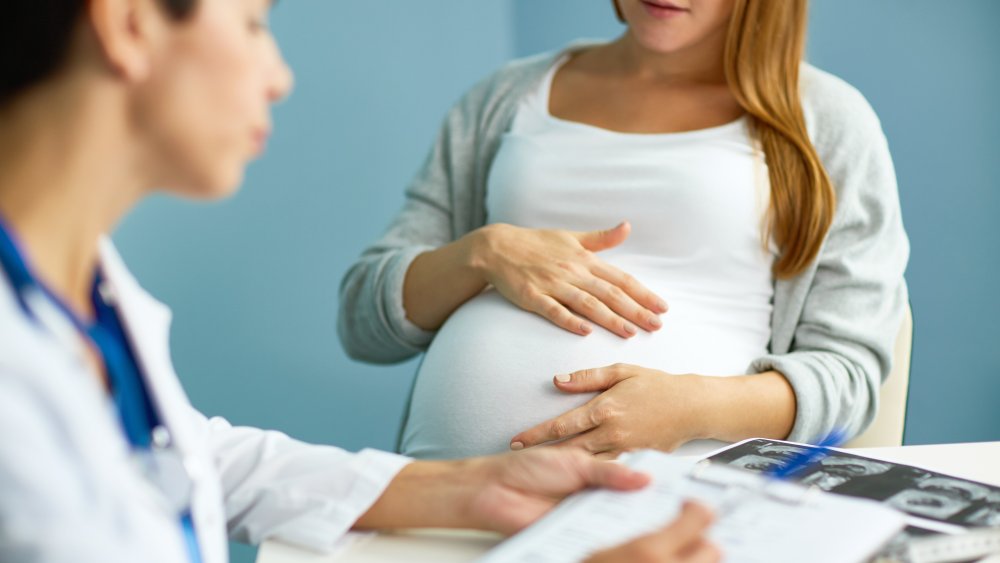The Real Reason For Hair Loss During Pregnancy
Pregnancy is incredible — what women's bodies are capable of doing in order to make babies is genuinely awe-inspiring. And yet, with the amount of stress we're under, there are understandably some side effects — as Rachel memorably intoned in Friends after listing just a few, "It's just such a magical time."
One of the more alarming elements aside from, you know, giving birth, is hair loss, which has long been the secret friends-with-babies share to make expectant mothers check their hairbrushes more carefully. Is it simply one of those false facts you believe about pregnancy, or is there some truth to it? And, if hair loss is to be expected, how can we prepare for it, or even combat it? And, on a micro level, why does it happen in the first place?
Hair loss in pregnancy is caused by many factors
OB-GYN expert Dr. Mary C. O'Toole spoke to Romper about what it all means, and whether we should be worried if it does happen to us. She advises that, first and foremost, hair loss in women is most commonly caused by sudden changes in weight or diet, stress, thyroid dysfunction, anemia, or zinc deficiency, meaning it doesn't happen as much during pregnancy. Sometimes, though, it does happen. "We might see this in a patient who has had severe morning sickness or weight loss, or may be under psychological stressors," she said.
Hair loss is far more common postpartum, but regardless of when it occurs, she notes, "I urge them to not stress [about it] and to continue their prenatal vitamins."
If you're suffering hair loss during pregnancy, go to your doctor who will test for anemia, thyroid problems, or zinc deficiency, which can then be treated with supplements or medication accordingly. A dermatologist can also provide "reassurance and/or evaluation," O'Toole notes. She suggests biotin as a good addition to your usual prenatal vitamins, if you're concerned, as it supports skin health — but make sure you ask your care provider first before starting any supplements.
Hair loss in pregnancy is only temporary
Healthline notes that women may actually lose fewer hairs while pregnant as rising estrogen levels can affect the natural cycle of hair follicle shedding, which is part of the reason hair loss is more of a thing after pregnancy when hormone levels return to normal and you shed that hair your body had held onto for those intervening months. However, particularly in the first trimester, the balance of hormones shifts dramatically, which may stress the body and cause hair loss.
Regardless, O'Toole warns that undue stress and anxiety could potentially cause hair loss, so reassurance and support from your loved ones are of the utmost importance throughout pregnancy, particularly if stress or other psychological issues are present. Pregnancy can pretty overwhelming, so try to relax as much as possible. Luckily, however, and if ever it happens, it won't lead to permanent hair loss and usually clears up within six months, so try not to panic too much. It's important to note, too, that if you're experiencing bald patches or anything more dramatic, there could be other issues, so consult your doctor immediately.


